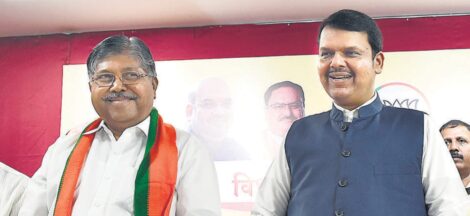
In a landmark decision, the Supreme Court has upheld the right of daughters to be entitled to equal shares in the ancestral property as the sons, including those daughters who were born before 17th June, 1956 when the Hindu Succession Act, 1956 came into force. The case pertained to interpretation of Section 6, HAS, particularly after the amendments in 2005. The question before the Court was whether the daughters could be denied their share on the ground that they were born prior to the enactment of HSA in 1956, and thus could not be treated as coparceners.
The Supreme Court, after extensively going through the law on this issue, categorically held that
“The law relating to a joint Hindu family governed by the Mitakshara law has undergone unprecedented changes. The said changes have been brought forward to address the growing need to merit equal treatment to the nearest female relatives, namely daughters of a coparcener. The section stipulates that a daughter would be a coparcener from her birth, and would have the same rights and liabilities as that of a son. The daughter would hold property to which she is entitled as a coparcenary property, which would be construed as property being capable of being disposed of by her either by a will or any other testamentary disposition. These changes have been sought to be made on the touchstone of equality, thus seeking to remove the perceived disability and prejudice to which a daughter was subjected.”
The Court further held that the law, after 2005, statutorily recognizes the rights of coparceners of daughters as well since birth, irrespective of whether born before or after the enactment of HSA in 1956.
This decision will go a long way in crystallising the property rights of women under Hindu law, irrespective of their marital status. The amendments in 2005 in HSA fundamentally altered the status of women, by making daughters equal coparceners in the Hindu Undivided Family property (ancestral property), but in practice, most daughters still don’t claim their property rights, and waive it to their brothers. Besides, trial courts and even High Courts still operate in the earlier paradigm of sons being the only coparceners in law. A categorical assertion of equal property rights between sons and daughters, as done by the Supreme Court, has clarified the law to a large extent, leaving very little scope for mis-interpretation by the lower courts. [Danamma @ Suman Surpur & Anr. Vs. Amar & Ors., Civil Appeal No. 188-189 of 2018, date of judgment: 01.02.2018]
Major decisions
- Constitution of Water Disputes Tribunal for Mahanadi ordered–In a long pending dispute between Odisha and Chhattisgarh over equitable usage of the waters of the River Mahanadi, the Supreme Court has ordered the constitution of a Water Disputes Tribunal under Section 4(1) of the Inter-State River Water Disputes Act, 1956. The Court noted that the long pending demand had not been acted upon by the Centre. The Centre had claimed that since Chhattisgarh had not come forward to resolve the disputes by negotiations, the Tribunal could not be constituted. But after noting the statement made by the Minister of State for Water Resources in the Rajya Sabha that stated that the dispute was unresolved, the Court directed the Central Government to set up a Tribunal within one month.[The State of Odisha v The State of Chhattisgarh, Original Suit No. 1 of 2017, date of order: 25.01.2018]
- Three months’ time granted to States for the implementation of ‘Rights of Persons with Disabilities Act, 2016’– The Supreme Court passed an order directing States and Union Territories to ensure the proper implementation of the Rights of Persons with Disabilities Act, 2016 last year. However, the Petitioner’s counsels pointed out that in response to the said order, the States and UTs had filed affidavits pertaining to the 1995 Act, but not the 2016 Act. Accordingly, the Supreme Court directed the States and UTs to comply with its directions and file affidavits within three months. [Justice Sunanda Bhandare Foundation v Union of India, Writ Petition (Civil) No. 116/1998, date of order: 25.01.2018]
- Contempt notice issued to states over cow vigilante violence–The Supreme Court issued notice on a contempt petition filed against the governments of Haryana, Rajasthan and Uttar Pradesh for failing to stop incidents of violence relating to cow vigilantism, in compliance with order of Court. On 06.09.2017, the Court directed these States to nominate a senior police officer as the nodal officer in each district tasked with ensuring that no cow vigilantism takes place. But hardly any officer been nominated and many incidents of violence taken place in last few months in these States. [Tushar Gandhi v Depinder Singh Dhesi, Contempt Petition (Civil) No. 1986 of 2017, order dated 29.01.2018]
- Decision withdrawn after notice in PIL challenging orange passport colours for ECR passports – The Kerala High Court issued notice to the Central Government on a PIL challenging its decision to change the colour of the cover of the Emigration Check Required (ECR) passports to orange and further remove the last page containing their personal details. The petitioner argued that such a change had no rational basis and was a violation of equality and privacy of such persons, as it would make their educational and economic status public and further subject them to humiliation. After lots of criticisms of the decision, the Ministry of External Affairs (‘MEA’) revoked its decision. [ Shamsuddeen Karunagappally vs. Union Of India, Writ Petition (Civil) No. 2940 of 2018]
- Arbitral award against Ranbaxy upheld – The Delhi High Court has upheld international arbitral award against the former promoters of the Ranbaxy group, Malvinder and Shivinder Mohan Singh. Daiichi had filed an execution petition to enforce a Rs 6500 Cr award passed by a Singaporean tribunal, when it reached the conclusion that the brothers had hidden an important document from Daiichi while entering into a Share Purchase and Subscription Agreement. The High Court though held that the award was not enforceable against the children of the brothers, holding that the protection of minors was a part of fundamental policy of India. [Daiichi Sankyo Company Limited v Malvinder Mohan Singh, OMP (Execution First Appeal) (Commercial) 6/2016, date of judgment: 31.01.2018]
- PIL to make sexual harassment laws gender neutral dismissed – The Supreme Court has dismissed a petition, which sought making the laws on rape, sexual harassment, stalking, etc gender neutral. The Chief Justice of India Dipak Mishra termed the petition as “imaginary” and claimed that such laws could not be held unconstitutional, as such laws were a part of measures taken under Article 15(3) to protect women. Further, the Court said that such a change would come be in the ambit of the Parliament and not the Supreme Court. [Rishi Malhotra v Union of India, Writ Petition (Criminal) No(s).7/2018, date of order: 02.02.2018]
- Court checks violation of individual’s privacy – The Allahabad High Court, in a case relating to surveillance of potential suspects, emphasised the importance of protecting the fundamental right of privacy. The Court struck down the police action of continuing surveillance of a man from 2011 onwards, which began owing to sufficient reasons. But in recent years, it continued without the application of mind and there was no need to continue with the surveillance by opening his history sheet and subjecting him to unnecessary scrutiny. Such intrusion into the privacy of an individual could only be allowed in accordance with the situations mentioned in Police Regulations, which were not met in the case. [Bablu Shah v State of UP, Criminal Miscellaneous Writ Petition No. 29022/2017, date of order: 24.01.2017]
- Issues surrounding Jallikattu referred to five judge bench – The question as whether Tamil Nadu can conserve Jallikattu (bull fighting festival) as its cultural right or not has been referred to a bench of five judges, as the judges felt that it involved questions of substantial importance pertaining to the interpretation of the Constitution. A batch of petitions question the constitutional validity of Prevention of Cruelty of Animals (Tamil Nadu Amendment) Act, 2017, which sought to allow Jallikattu in the State of Tamil Nadu. [The Animal Welfare Board of India v Union of India, Writ Petition (Civil) No. 23/2016, date of order: 02.02.2018]
- Reply on application against pushing back of Rohingyas sought – The Supreme Court has sought reply from the Centre on an application filed by Prashant Bhushan seeking a direction to the government to not stop Rohingyas from entering India. Bhushan further argued that their deportation was also against the principle of Non-refoulment, which prohibits deportation of refugees if they face persecution in their own country. The Centre opposed the application on the basis that such decisions were to be taken by the executive and the Courts were not to interfere in them. [Mohammad Salimullah v Union of India, Writ Petition No. 793/2017, date of order: 31.01.2018]
- Arguments begin in Judge Loya’s case – Senior Counsel Dushyant Dave appearing for Bombay Lawyers’ Association, seeking an independent probe into the death of Judge Loya, implored the Court to have the report of Commissioner of Intelligence placed on record as it suffered from various contradictions He further placed reliance on earlier cases to further press his case, contending that an attack on lower judiciary is an attack on the entire system and not just one man. [Bombay Lawyers Association v The Registrar General, Transfer Case (Criminal) No. 1/2018, date of order: 02.02.2018]
Others –
- Salaries of Supreme Court and High Court judges hiked – The Central government has hiked the salaries of the Supreme Court and High Court judges. Vide the High Court And Supreme Court Judges (Salaries And Conditions Of Service) Amendment Act, 2018, the salary of the Chief Justice of India has been increased from the present ₹1 lakh to ₹ 2.80 lakhs per month. The hike will be applicable from January 2016 onwards.
- All judicial work taken away from Justice Shri Narayan Shukla–An in-house inquiry committee constituted by the Chief Justice of India, Shri Dipak Mishra, has recommended the removal of sitting Allahabad High Court judge, Justice SN Shukla. The report noted that he had made hand-written corrections to the judgment in Medical College admissions case to allow GCRG Institute of Medical Science to admit a new batch. Further, it was alleged that Shukla J had violated orders passed by the CJI Misra-led bench of the Supreme Court, which was hearing cases regarding opening of medical colleges. The report further stated that Justice Shukla had “disgraced the values of judicial life, acted in a manner unbecoming of a judge”, and lowered the “majesty, dignity and credibility of his office”. CJI Misra had advised Justice Shukla to either resign or take voluntary retirement. However, the High Court judge has refused either option, prompting CJI to take away judicial work from him.
(IPA Service)
Prepared by Amritananda Chakravorty (amritananda.c@gmail.com) and Mihir Samson (mihirsamson@gmail.com), Delhi based practicing Advocates.
The post Supreme Court Upholds Daughter’s Property Rights appeared first on Newspack by India Press Agency.


